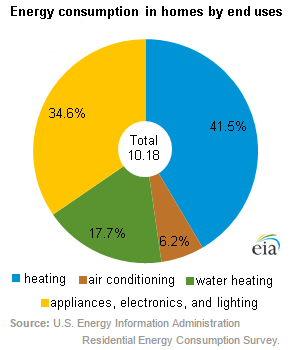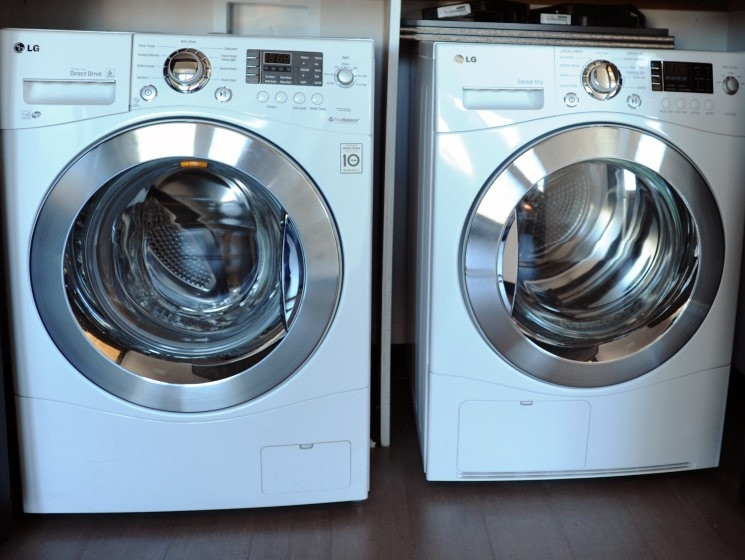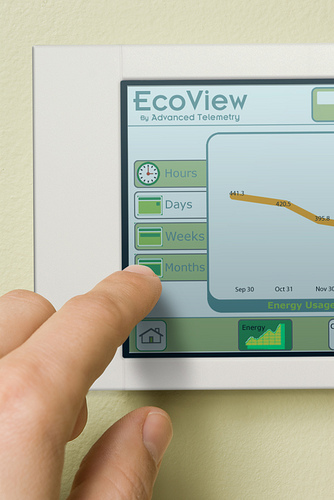We all could stand to save some money on laundry supplies. Name-brand detergents can be ridiculously expensive and just drying clothes in the clothes dryer can increase electricity bills. Even buying dryer sheets can be an unnecessary expense, but doing household chores shouldn’t cost an arm and a leg. There are plenty of ways to save money in the laundry room and here are some good ideas to get you started.
Saving Money on Washing and Drying

According to the U.S. Department of Energy (U.S. DOE) the new ENERGY STAR clothes washers use 20% less energy to wash clothes than standard washing machines and switching your temperature setting from hot to warm can cut a load’s energy use in half. ENERGY STAR clothes dryers also use 20% less energy than conventional models. When shopping for a new clothes dryer, look for one with a moisture sensor that automatically shuts off the machine when your clothes are dry.
If you live in a warm climate, you could install a clothesline. Even if you don’t live in a warm climate all year long, you can still dry your clothes outside during some of the spring and summer months or use or use indoor drying racks to save money on drying your clothes (by the way adding esxtra moisture inside your home in the winter will make it feel warmer and save you more on heating bills). If you don’t want to install a clothesline in your backyard, even something as simple as a canopy tent frame may work to hang your clothes on for drying purposes. During the colder months when you may have to use a clothes dryer, consider purchasing wool dryer balls to help save money. You toss the wool balls in with each load of laundry you wish to dry, and they cause the laundry to dry quicker. You can also find ways to vent the heat and moisture from your dryer inside.
Other Tips from the U.S. DOE:
- Periodically inspect your dryer vent to ensure it is not blocked. This will save energy and may prevent a fire. Manufacturers recommend using rigid venting material — not plastic vents that may collapse and cause blockages.
- Wash your clothes in cold water using cold-water detergents whenever possible.
- Wash and dry full loads. If you are washing a small load, use the appropriate water-level setting.
- Dry towels and heavier cottons in a separate load from lighter-weight clothes.
- Don’t over-dry your clothes. If your machine has a moisture sensor, use it.
Saving Money on Detergent
Name-brand detergents may be nice, but there are cheaper alternatives. There are a variety of tutorials on YouTube on how to make your own laundry detergent and in so doing save a bundle. If you do not have the time make your own, there are other inexpensive brands like Foca, available at Wal-Mart, Sam’s Club and other stores. It only costs around $8 or $9 for an 11-pound bag. Many people say that the detergent works very well at getting clothes clean and smells great. Compare the price of that detergent to the price of other detergents, and you have a clear winner! Just be sure to test it. If you have to use twice as much in order to get your clothes clean you really aren’t saving anything.
Saving Money on Dryer Sheets
If you dislike spending money on dryer sheets but love how they make your laundry smell, consider making your own at home. You can do this pretty simply with old rags and essential oils to make the reusable sheets smell nice. doTERRA oils and vinegar are very inexpensive and can be changed in scent depending on your mood.
As you can see, you can save some money on the everyday laundry supplies you need. Just use a few or all of these tips and see the savings stack up.
You might also like:
- Energy Finances 101: How to Decrease Your Bills By 10 Percent or More!
- Upgrade Your Windows and Save
- How To Save Money On Home Energy
- 8 Tips for Saving Money on Your Utility Bill
- Fight The Cold Without Draining Your Budget
- Simple Ways to Save Electricity Even a Child Can Understand
Recommended by Amazon:
- Renewable Energy and Other Money Saving Secrets for Your Home- In today’s economy, there are more reasons than ever to cut your energy bill. Learn how to save money by generating your own free renewable energy now!
- The Renewable Energy Home Handbook: Insulation & energy saving, Living off-grid, Bio-mass heating, Wind turbines, Solar electric PV generation, Solar water heating, Heat pumps, & more- The Renewable Energy Home Handbook is biased towards the practical, and covers the installation of all leading types of alternative domestic energy sources – from ground- and air-source heat pumps, PV solar electricity generation and solar water heating, to bio-mass domestic heating systems and wind turbines. Discussing the pros and cons of each technology, it also provides you with a clear overview of what’s genuinely required and the benefits to be gained from each system.
- Green Home Building: Money-Saving Strategies for an Affordable, Healthy, High-Performance Home– According to conventional wisdom, building a green home is an expensive endeavor. The standard approach treats green as an add-on, tacking “premium” products, finishes, and equipment onto a traditional home design. As a result, many green home projects end up over budget or fail to achieve their environmental and performance goals. Green Home Building explodes the myth that green homes have to cost more.
- The Energy-Smart House– Energy efficiency begins at home. Nobody knows this better than homeowners, remodelers, builders, and designers looking to cut back and save more. This is the place to start–“The Energy-Smart House” is a must-have for those concerned about rising home energy costs. Written by builders and energy experts from all over the country, the contributing authors are seasoned professionals whose articles have appeared in “Fine Homebuilding “magazine.



